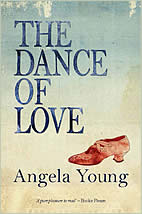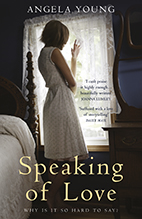Black History Month began in America as an annual History Week, in 1925. That year, Black historian Carter G. Woodson, the Father of Black History, announced Negro History Week: A celebration of a people that many in this country at the time believed had no place in history. February was chosen because it marked the birthdays of Abraham Lincoln and Frederick Douglass. From Woodson’s Wikipedia page:
Woodson worked to preserve the history of African Americans and accumulated a collection of thousands of artifacts and publications. He noted that African-American contributions ‘were overlooked, ignored, and even suppressed by the writers of history textbooks and the teachers who use them’. Race prejudice, he concluded, ‘is … the inevitable outcome of thorough instruction to the effect that the Negro has never contributed anything to the progress of mankind’.
Woodson founded the Association for the Study of Negro Life and History, now called the Association for the Study of African American Life and History (ASALH) and since his death in 1950 the ASALH has fought to keep Woodson’s legacy alive. In February 2020, in this article, Karma Allen interviewed Noelle Trent, Director of Interpretation, Collections and Education at the National Civil Rights Museum who said she was:
Frustrated that black history tends to be ignored by popular culture once February ends. Instead, Black History Month should be seen as a ‘starting point’ for a larger conversation about how to incorporate Black history into American history as a whole.
Black students and Black educators at Kent State University expanded American Black History Week into a month beginning on February 1, 1970 and, in 1976, every US President has designated February as Black History Month.
from here
from here
In the UK Black History Month was first celebrated in October 1987. It was organised by Akyaaba Addai-Sebo, Special Projects Coordinator of the Ethnic Minorities Unit of the Greater London Council (GLC), after a broken-hearted colleague came to work one morning and:
Revealed to me in confidence that her seven-year-old son, who she had proudly and purposefully named Marcus, after Marcus Mosiah Garvey (a Black nationalist leader) had asked her: ‘Mom, why can’t I be white?’. This prompted me to ask questions about identity and to observe and talk to children after school, in buses, parks and in the playgrounds in London communities.
from this interview
October was chosen because the weather was not yet cold, school children were fresh from the long summer holiday and had fewer exams and tests to worry about.
Clearly Black History Months are good things. Education about Black history is a good thing. But isn’t it time, now, as Noelle Trent says, to incorporate Black history into history as a whole? Isn’t it time, as the words in the video above urge us: to treat Black history as a history that deserves a well-rounded holistic platform? Isn’t it time?
No Black child should ever have to ask why they aren’t white.
Every child should feel represented.
Sinai Fleary, writing in the HuffPost in UK Black History Month in 2018 said:
As a young black girl whose parents were Rasta and came from the Caribbean, I was delighted that renowned poet and author Benjamin Zephaniah was doing the assembly [at Fleary’s school in the early 1990s]. For those minutes, I was completely fixated on this tall, black, Rasta man with long dreadlocks, performing poetry in front of the whole school. He spoke with a Jamaican accent, mixed with some English slang. He sounded like the voices I heard in my own family. Instantly, I felt a connection. He was me and I was him. Every child has the right to feel what I felt that morning: represented.





The 11 year old Afghani boy I coach told me Benjamin Zephaniah was going to speak to his school this week (via Zoom) He was excited by this . I’ll report back to you what he says. This is the boy with whom I read The Charge of Light Brigade recently. He told me he had been set an assignment to write a piece in what it was like to Go back to school this term. He told me he had written about his feelings ending up with “Into the valley of death. “. Isn’t that glorious ?
I’d love to hear what the 11-year-old says about BZ. He’s an inspiring human and an inspiring poet. And do you think the boy you coach meant that going back to school was like going into the valley of death? That Someone had blundered … and All the world wondered … about the sanity of the noble charge [back to school] … ? I’d love to know that too.